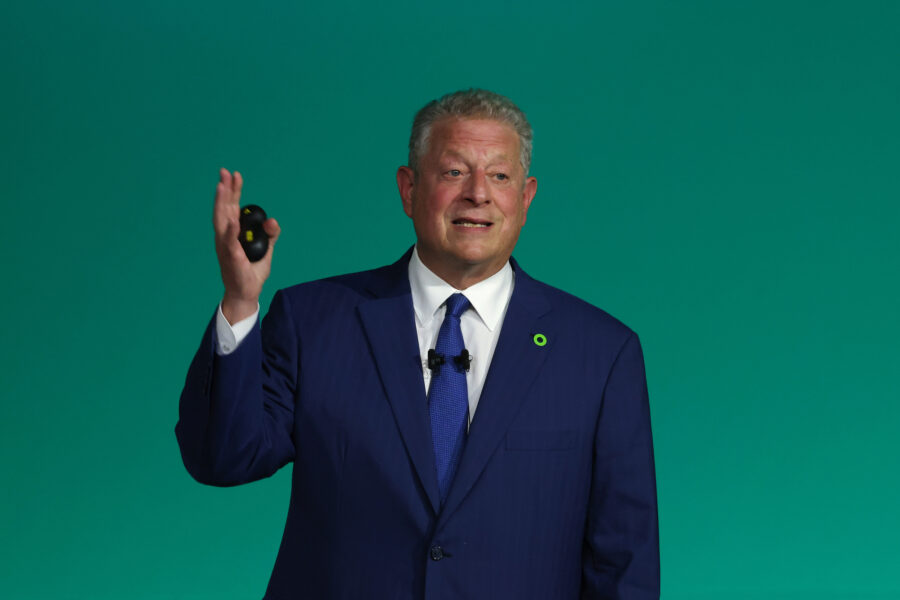A new group consisting of countries severely threatened by climate change launched this week, putting a face on those most vulnerable to the climate crisis and highlighting their financial plight.
Called the Vulnerable 20, or V20, the group consists of finance ministers from 20 imperiled countries, from the land-locked Afghanistan in the Middle East to the Pacific island nations of Tuvalu and Vanuatu.
“We established this group recognizing the power and potential of Finance as an integral tool in solving [climate change],” Cesar Purisima, the Philippines’ finance minister and chair of the V20, said in a statement. “Unified in our vulnerability, the economic threats and difficulties arising from climate change, and heightened sense of urgency on the issue, we stand together on the front lines of a battle we most certainly cannot afford to lose.”
The V20 nations already face “an average of more than 50,000 deaths per year since 2010, a number expected to increase exponentially by 2030,” because of climate change, according to the group’s official statement. The member countries estimated that they face escalating annual losses of at least 2.5 percent of their GDP potential per year, estimated at $45 billion since 2010 and expected to increase up to $400 billion over the next 20 years.
The member countries—Afghanistan, Bangladesh, Barbados, Bhutan, Costa Rica, Ethiopia, Ghana, Kenya, Kiribati, Madagascar, Maldives, Nepal, Philippines, Rwanda, Saint Lucia, Tanzania, Timor-Leste, Tuvalu, Vanuatu and Vietnam—are home to 700 million people.
Launched less than two months before the U.N. climate summit in Paris, the V20 hopes to send a clear message to developed nations that it’s time to get serious about financing climate action.
“Finance happens to be at the core of the climate talks,” said Harjeet Singh, the lead climate change expert for the international organization ActionAid. “If you keep talking and don’t deliver finance, what’s the point of doing all these negotiations?”
By getting these ministers involved now, said Singh, these nations are making it clear they want to shift the focus of negotiations “from talking of issues to asking developed countries to deliver on finance.”
Moreover, the V20 countries are demonstrating their willingness “to be accountable domestically” and go beyond “big promises and big talk,” said Koko Warner, a climate researcher for the United Nations University Institute for Environment and Human Security.
The inclusion of the finance ministers is key, explained Sönke Kreft, an expert in international climate policy at the policy and economics group Germanwatch. Normally climate issues are handled by a country’s environment, energy or climate minister, he said. “Finance is often considered [a] higher ranking ministry,” and their involvement here is “really remarkable,” he said.
The V20 is an offshoot of the Climate Vulnerable Forum, an international partnership dedicated to responding to and spreading awareness about climate change, and includes the same member countries.
But more than simply a mouthpiece for responding to climate change, the new group plans to develop innovative approaches to climate finance management.
For example, the V20 plans to study the feasibility of developing a global insurance risk pool for its members, according to Michael McKinnon from the United Nations Development Programme, who is involved in managing the V20.
Modeled after regional insurance pools such as the Caribbean Catastrophe Risk Insurance Facility and the African Risk Capacity, the idea is to offer what’s called “index-based” insurance that triggers payouts if certain hydrological and meteorological thresholds are surpassed, such as high flooding in a limited time period.
If the V20 ends up pursuing this insurance plan, Singh from ActionAid told InsideClimate News that he suspects the group will look for outside donors to help countries pay their premiums. One possible source is the G7, which in June committed “to increase up to 400 million the number of people in the most vulnerable developing countries who have access to direct or indirect insurance coverage against the negative impacts of climate change related hazards by 2020…”
V20 members on Thursday voiced support for a new international tax, called a “financial transaction tax,” to raise funds for climate response efforts.
The group’s ministers also expressed support for the fulfillment of the Green Climate Fund, created to help undeveloped and poorer nations pay for clean energy and projects that prepare them for climate change. The goal of the fund is to provide $100 billion per year after 2020. So far, 37 nations have pledged about $10.2 billion to the fund.
“The world needs stronger voices from developing countries to draw more attention to their great needs for investment in fighting the impacts from climate change,” said World Bank President Jim Yong Kim, who spoke at a press conference in Lima, Peru introducing the group. The announcement was made ahead of a three-day financial conference there hosted by the World Bank and the International Monetary Fund.
“For vulnerable countries, addressing the impact of climate change that is already locked in for the next 10 to 30 years takes sustained effort,” said Warner. This new group is trying to set the tone for Paris and beyond that “we are all in this together, we all need to find solutions.”











